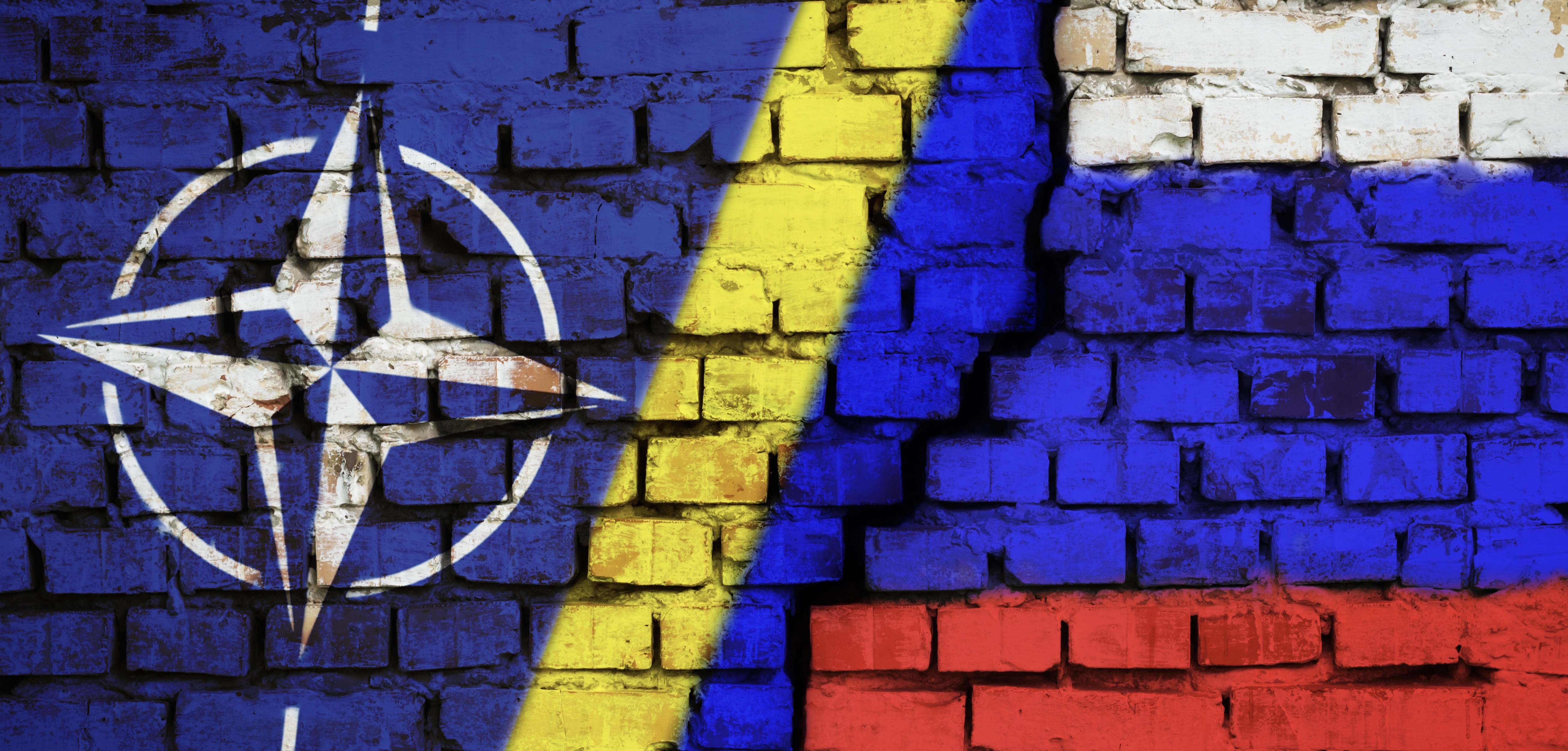The world’s biggest mistake in the Russia-Ukraine crisis is its longtime policy of appeasement to Russia, said a Fordham professor in a recent panel.
For many years, NATO did not admit Ukraine or Georgia to its ranks because its members were afraid that Russia would retaliate by invading Ukraine and other countries, said John Davenport, Ph.D., philosophy professor and director of Fordham’s minor in peace and justice studies. But the effort to placate President Vladimir Putin has gotten us nowhere—except for a war that will result in millions of refugees, hundreds of billions of dollars of damage in Ukraine, and possibly a worldwide recession, he said.
“What we should be doing now is matching him tit for tat … We [should]admit Georgia next year. And as soon as this war is over in Ukraine, we’ll admit Ukraine as well. We’re going to stand up for a no-fly zone. If he takes further aggressive actions, maybe we’ll get rid of the puppet regime that [he’s] supporting in Venezuela. We’re in a new cold war here,” Davenport said. “Putin is doing this partly because he thinks we’re weak-willed, right? That countries in the NATO alliance don’t have the will to fight. If we don’t show him that’s not true, we’re going to end up—by the end of this century—with a world perhaps completely ruled by dictators.”
In the virtual panel on March 4, Davenport and Olena Nikolayenko, Ph.D., a Ukraine native and chair and professor of Fordham’s political science department, explained how Western foreign policy led to the Feb. 24 invasion of Ukraine and offered ways that the U.S. can alleviate the conflict.
A Mission to Revive the Soviet Union
In 1991, the Soviet Union collapsed and Ukraine became an independent state. For Putin, the dissolution of the Soviet Union was the “greatest catastrophe of the 20th century,” said Nikolayenko.
“He’s on a mission to reset Russian greatness and revive the Soviet Union,” said Nikolayenko, who is originally from Ukraine and has held prestigious positions in several U.S. universities. “This year marks the centennial of the establishment of the Soviet Union, which was set up in 1922. So to some extent, maybe it’s not an accident that he decided to launch this military campaign in order to rewrite history.”
Since Putin came to power in 2000, he has successfully seized territory from Russia’s neighbors—Georgia and Ukraine—and supported dictatorships across the world, including the Assad regime in Syria, said the professors. Now he has started “the largest ground war in Europe since World War II,” said Nikolayenko.
Years of Assumptions and Appeasement
There are several factors that emboldened Russia, particularly Western foreign policy, said Nikolayenko. U.S. presidential administrations often downplayed Russia’s belligerent behavior, she said. They expressed concern and implemented soft sanctions to signal disapproval of Russia’s actions, but they continued to maintain diplomatic relations and trade and purchase energy resources from Russia, which inadvertently provided financing for Russia’s military, she said.
“Over the past decade or more, Western governments tried to appease Russia. They assumed that if Russia takes over just one piece of land—a piece of Moldova, a piece of Georgia, a piece of Ukraine—then the incumbent government in Russia can be appeased and the West can continue to have economic, political, and cultural relations with Russia,” Nikolayenko said. “But of course, as we can see now, this policy might not work very well.”
Finding Solutions: Aid, Trade, and a NATO No-Fly Zone
Nikolayenko said that countries can help Ukraine by providing humanitarian assistance for refugees and military aid for the Ukrainian army. She shared several resources with panel attendees, including a list of charity organizations and upcoming anti-war protests worldwide.
She said that countries can also stop trading with Russia, especially in the oil and gas industries, which would significantly undercut Russia’s ability to finance the war. Davenport added that it will be difficult to make Europe independent of Russian energy, but it’s possible within the next decade.
“In the long run, it would take a huge investment—maybe five, 10 years at least,” Davenport said. “We could [massively increase]shipping natural gas … There are other countries that could do the same. This could be the beginning of a big push in Europe to try to become free of Russian energy dependence.”
The U.S. and Western states can also introduce a no-fly zone over Ukraine, which would reduce deaths and overall destruction in Ukraine, said Nikolayenko. However, audience member Annika Hinze, Ph.D., associate professor of political science and director of the urban studies program, pointed out a potential conflict.
“NATO allies are concerned that if they established and policed a no-fly zone over Ukraine, Russia would not respect it and start shooting down NATO fighter jets, putting NATO at a direct confrontation with Russia, and essentially escalating the war into a Great War (and potentially a nuclear conflict),” Hinze typed into a Zoom chat box. “As an expert, do you think these concerns are warranted?”
Nikolayenko said that she didn’t see how, militarily, the Ukrainian army could stop the bombardment of its cities without a no-fly zone.
“The United States and Western states have the military capacity to confront Russia, but they are reluctant to do it,” Nikolayenko said, adding that these countries are worried about further escalating the war. “And this is a source of frustration for many people in Ukraine because the world is watching and not willing to go that far.”
This event was sponsored by Fordham’s Pi Sigma Alpha chapter. Watch a full recording of the lecture below:

